第15章 LETTER 3(5)
Varro therefore looked on it as the break of day,or the beginning of the historical age.He might do so the rather,perhaps,because he included by it the date he likewise fixed,or,upon recollection,that the elder Cato had fixed,of the foundation of Rome within the period from which he supposed that historical truth was to be found.But yet most certain it is,that the history and chronology of the ages that follow are as confused and uncertain,as the history and chronology of those which immediately precede this era.
I.The State of Ancient Profane History The Greeks did not begin to write in prose till Pherecides of Syros introduced the custom:and Cadmus Milesius was their first historian.Now these men flourished long after the true,or even the vulgar Olympic era;for Josephus affirms,and in this he has great probability on his side,that Cadmus Milesius,and Acusilaus Argivus,in a word,the oldest historians in Greece,were very little more ancient than the expedition of the Persians against the Greeks.
As several centuries passed between the Olympic era and these first historians,there passed likewise several more between these and the first Greek chronologers.
Timaeus about the time of Ptolemy Philadelphus,and Eratosthenes about that of Ptolemy Evergetes,seem first to have digested the events recorded by them,according to the Olympiads.Precedent writers mentioned sometimes the Olympiads;but this rule of reckoning was not brought into established use sooner.The rule could not serve to render history more clear and certain till it was followed:it was not followed till about five hundred years after the Olympic era.There remains therefore no pretence to place the beginning of the historical age so high as Varro placed it,by five hundred years.
Hellanicus indeed and others pretended to give the originals of cities and governments,and to deduce their narrations from great antiquity.Their works are lost,but we can judge how inconsiderable the loss is,by the writings of that age which remain,and by the report of those who had seen the others.
For instance,Herodotus was cotemporary with Hellanicus.Herodotus was inquisitive enough in all conscience,and proposed to publish all he could learn of the antiquities of the Ionians,Lydians,Phrygians,Egyptians,Babylonians,Medes,and Persians:that is,of almost all the nations who were known in his time to exist.If he wrote Assyriacs,we have them not:but we are sure that this word was used proverbially to signify fabulous legends;soon after his time,and when the mode of publishing such relations and histories prevailed among the Greeks.
In the nine books we have,he goes back indeed almost to the Olympic era,without taking notice of it however;but he goes back only to tell an old woman's tale,of a king who lost his crown for showing his wife naked to his favorite;and from Candaules and Gyges he hastens,or rather he takes a great leap,down to Cyprus.
Something like a thread of history of the Medes and then of the Persians,to the flight of Xerxes,which happened in his own time,is carried on.The events of his own time are related with an air of history.But all accounts of the Greeks as well as the Persians,which precede these,and all the accounts which he gives occasionally of other nations,were drawn up most manifestly on broken,perplexed,and doubtful scraps of tradition.He had neither original records,nor any authentic memorials to guide him,and yet these are the sole foundations of true history.Herodotus flourished,I think,little more than half a century,and Xenophon little more than a whole century,after the death of Cyrus:and yet how various and repugnant are the relations made by these two historians,of the birth,life,and death of this prince?If more histories had come down from these ages to ours,the uncertainty and inutility of them all would be but the more manifest.We should find that Acusilaus rejected the traditions of Hesiod,that Hellanicus contradicted Acusilaus,that Ephorus accused Hellanicus,that Timaeus accused Ephorus,and all posterior writers Timaeus.This is the report of Josephus.But,in order to show the ignorance and falsehood of all those writers through whom the traditions of profane antiquity came to the Greeks,I will quote to your lordship a much better authority than that of Josephus;the authority of one who had no prejudice to bias him,no particular cause to defend,nor system of ancient history to establish,and all the helps,as well as talents,necessary to make him a competent judge.The man I mean is Strabo.